Raise the Bar Dawson
Dawson Women's Shelter is challenging all bar and restaurant staff in Dawson to participate in our Raise the Bar Workshops this summer to prevent sexual violence.
Why Raise the Bar?
We've all had that feeling in the pit of our stomach when something sketchy is happening at work and have wanted to help, but were unsure what to do. Learn skills to help bar and restaurant guests have a better, safer night out. We practice recognizing and interrupting sketchy behaviour in a way that increases safety and decreases risk.
Sign Me UP!
Work at a bar or restaurant? Want to get trained in bystander intervention?
Ask your manager to invite DWS to your workplace! Connect with Crickett - crickett@dawsonwomensshelter.com or 867.993.5086.
Sign-up for a workshop open to restaurant and bar workers in Dawson here.
What about bears?
Because of the ridiculously high rates of violence, we can’t assume that abuse doesn’t happen in our communities, to our friends, in our schools, and at our workplaces.
Bystander intervention skills are like first aid: we don’t go to two days of CPR training expecting to have to help someone in cardiac arrest, but we learn first aid skills to be ready to help out when we can.
There are useful and proven skills that we can use to interrupt behaviour that is either abusive or can lead to violence.
Get skilled
You can interrupt sketchy behaviour at a bar, concert, or a party to prevent
sexual violence.
The first step, as always, is learning more about the dynamics of violence, the myths we’re taught about sexual assault and partner violence, and what consent really looks like. A great and easy way to make this part of everyday learning is following incredible consent activists and educators on social media.
These skills are new for lots of folks! Just like first aid, these strategies require learning, relearning, and practice.
Delegate
Don't go it alone. Gather your peeps. Who is near that can help? A friend? Security staff? Even if it's just to confirm that the behaviour is not OK.
"I think she needs our help, but I don't know what to do. Have any ideas?"
"Will you watch while I go chat with them?"
Direct
Approach either the person being targeted or the person doing the harassing and be direct.
"Are you OK?"
"Can I help you?"
"That's not OK."
"You need to stop."
Distract
Think of a way to distract the folks involved in the situation: either the person being targeted or the person doing the harassing.
"Can you take a pic of my friends and I?"
"What time is it?"
"Where's the washrooms?"
"That's a FAB outfit! Where did you get it?"
"My friend's gone missing. Can you help me find them?"
Document
Make a record or keep your eye on the situation in case it escalates.
Step zero
We have so much research that shows:
Canadians don’t understand fully what consent is or what sexual violence is.
If you don’t understand the problem, you’re not going to be able to recognize when it’s happening or see it as something that needs to be interrupted.
That’s why step zero of bystander intervention is unlearning rape myths and getting really good at recognizing how sexual harassment and sexual violence in the stages before it gets extremely dangerous.
Make unlearning dangerous rape myths a part of your day to day routine by who you follow on social media and having conversations with your friends.
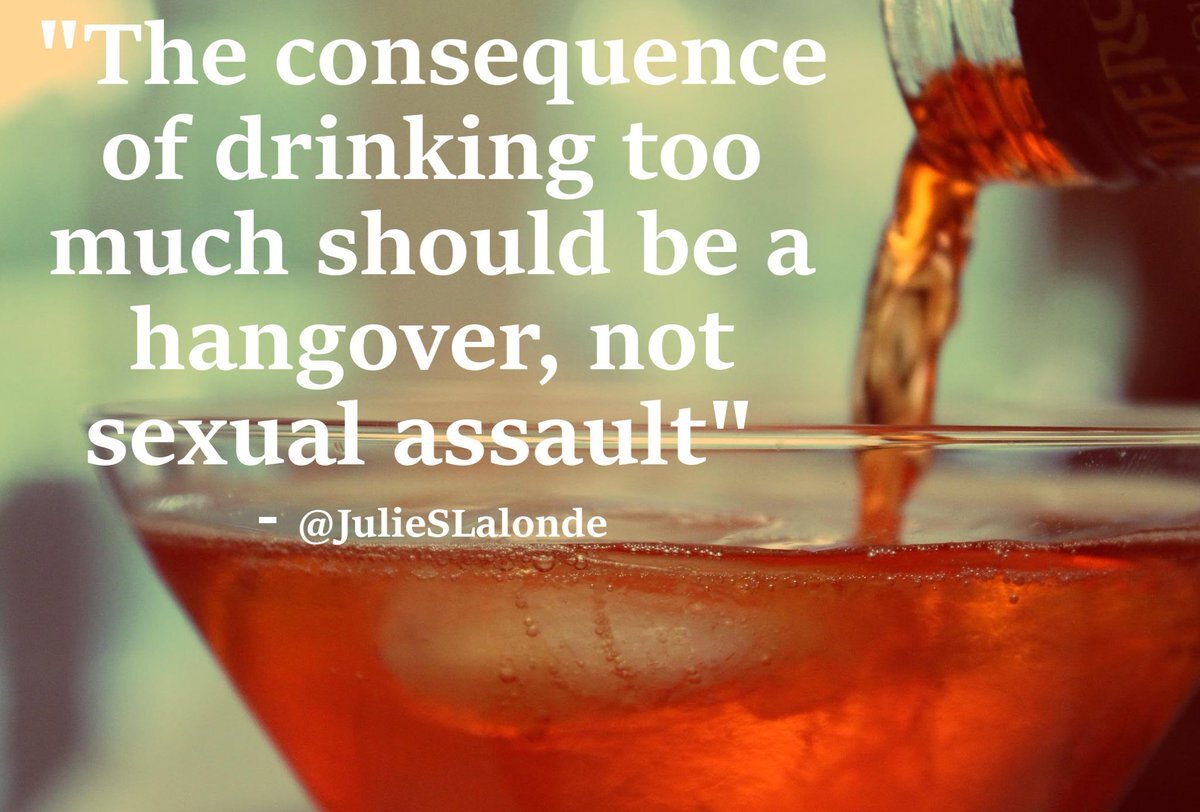
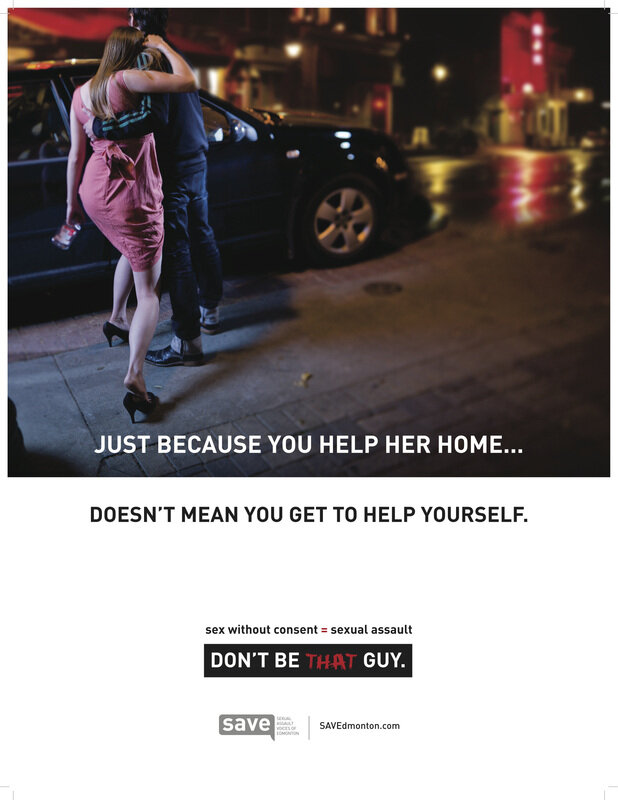
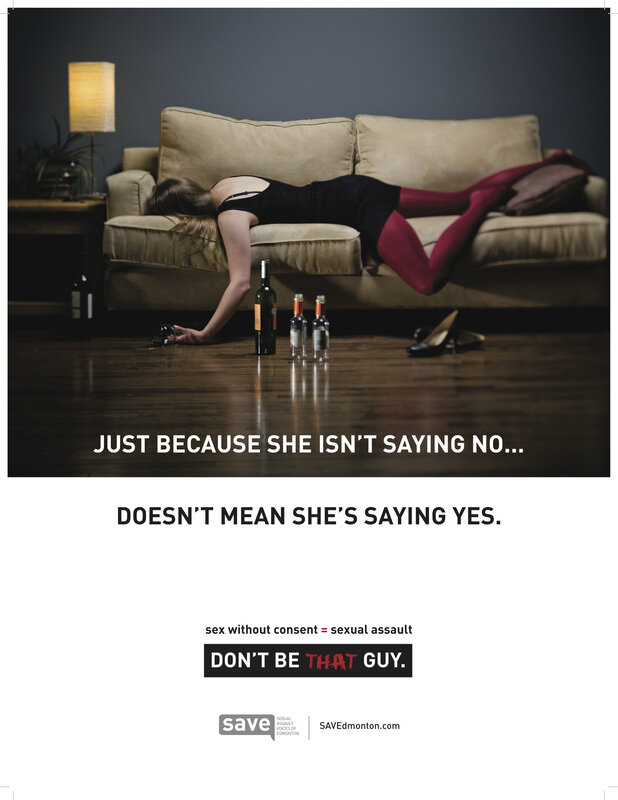
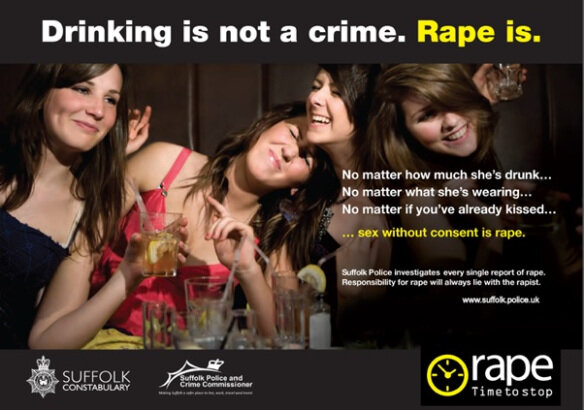
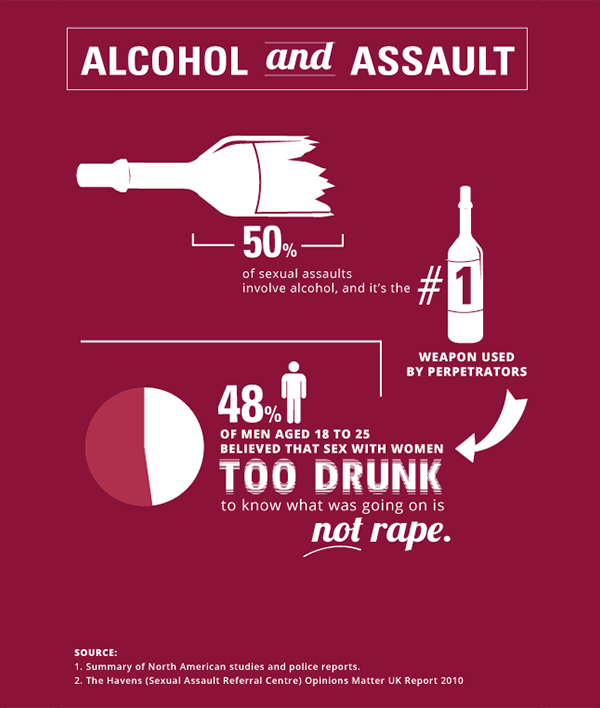
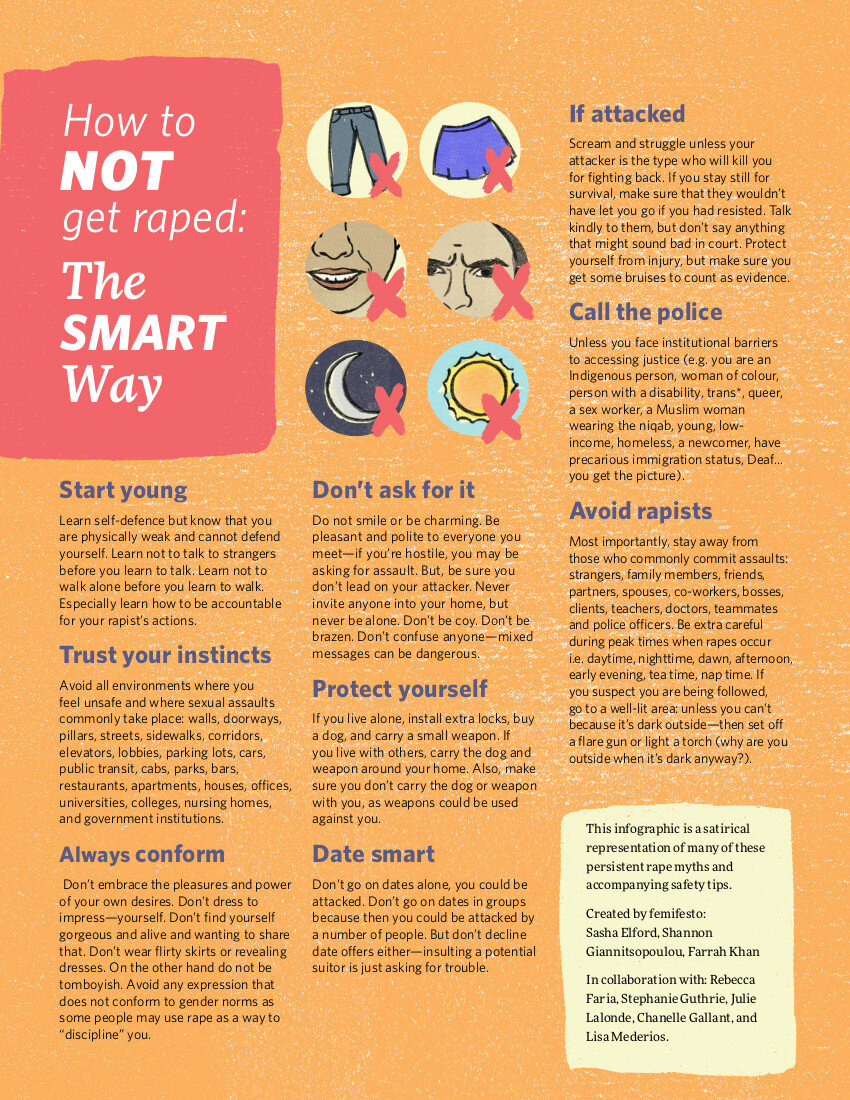
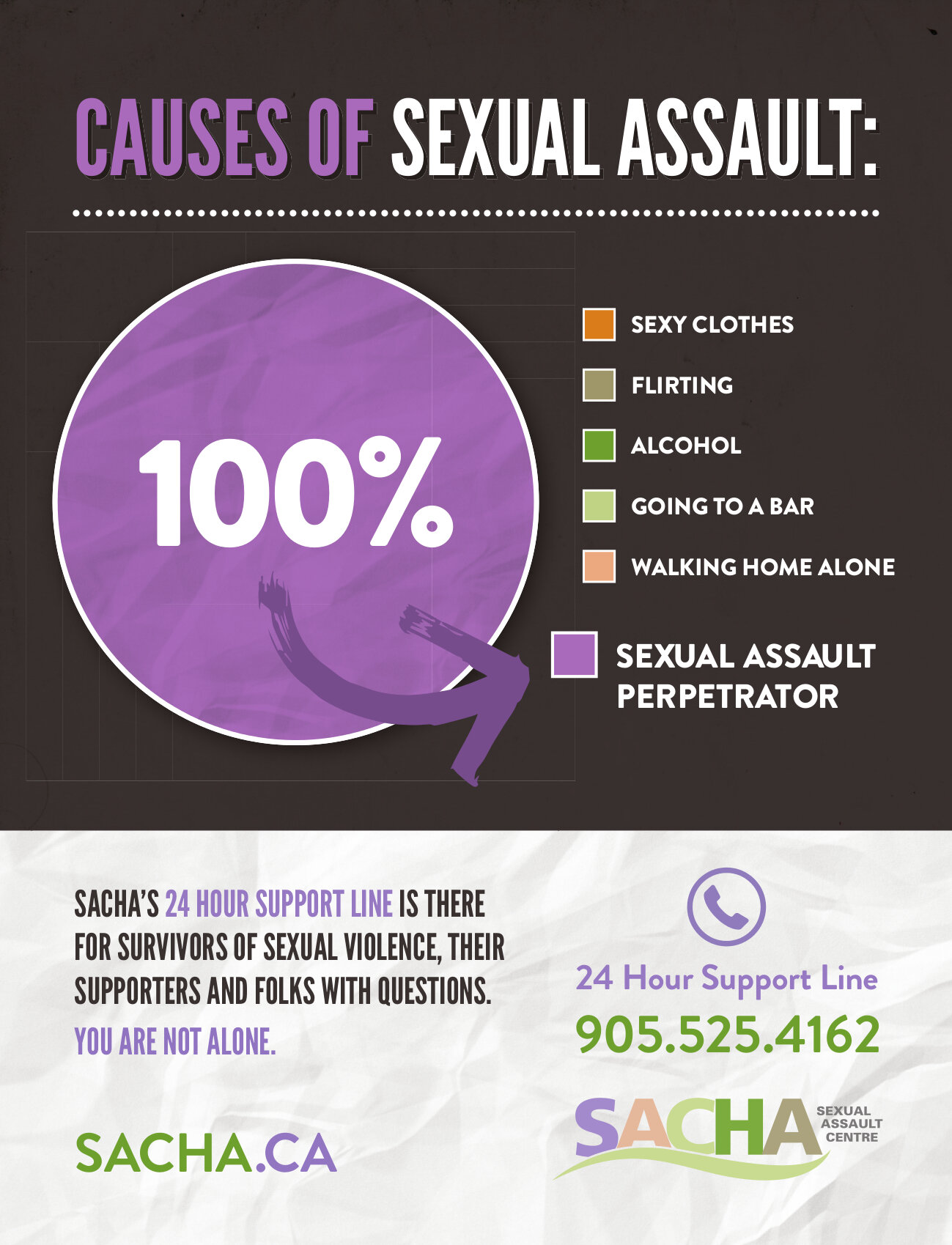

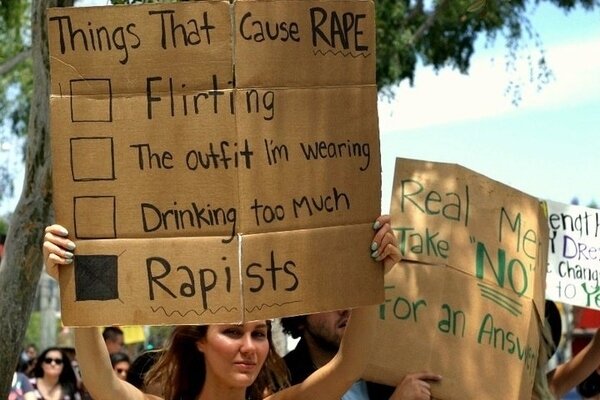
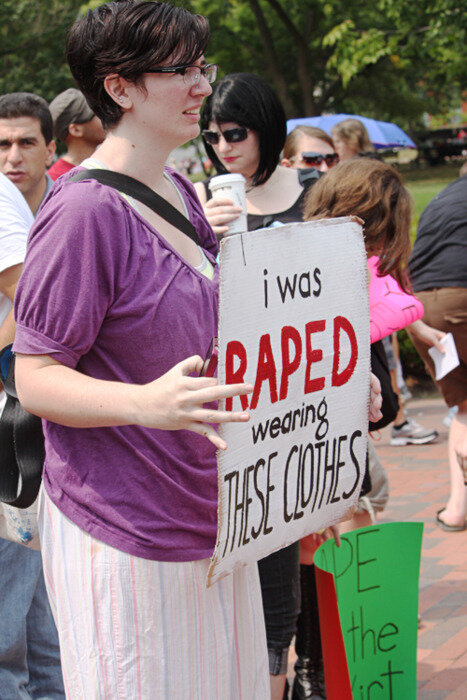
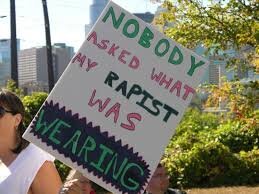
Start Early
“‘The standard you walk past is the standard you uphold.’”
‘But it’s just words!’ We hear that all the time.
Not only can words truly hurt, but also, if something racist, sexist, homophobic, or otherwise harmful is said and left to pass, not only does the person doing the harm assume that that behaviour is welcome in that space, but others who hold those harmful beliefs will also believe that their racism, sexism, homophobia, etc. will be welcome.
It’s hard at first, but essential to create a culture of consent and equity in small ways as well as giant ways.
Calgary Communities Against Sexual Abuse created this great infographic about the link between oppressive thoughts and words to more physical forms of violence.
Created by Calgary Communities Against Sexual Abuse
It’s not always a direct line between degrading words about women’s bodies to rape, but oppressive attitudes and beliefs create an environment where sexual violence is expected and the norm as well as a culture where it is extremely difficult for survivors to talk openly about their experiences of violence.
Definition by FORCE: Upsetting Rape Culture
Infographic created by YWCA Canada
Practice
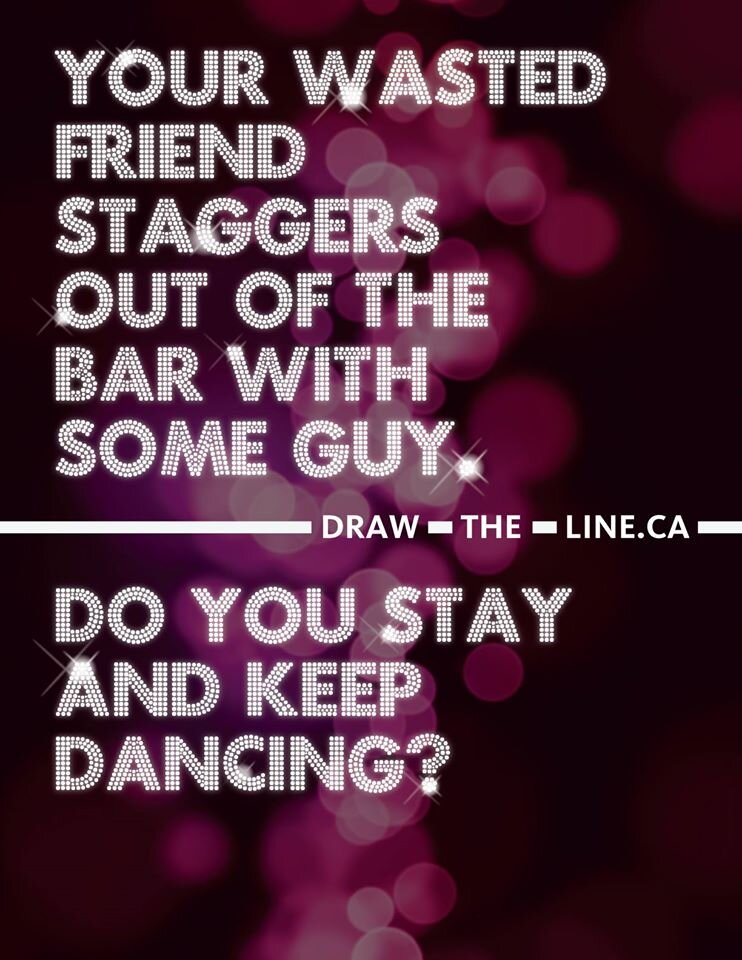
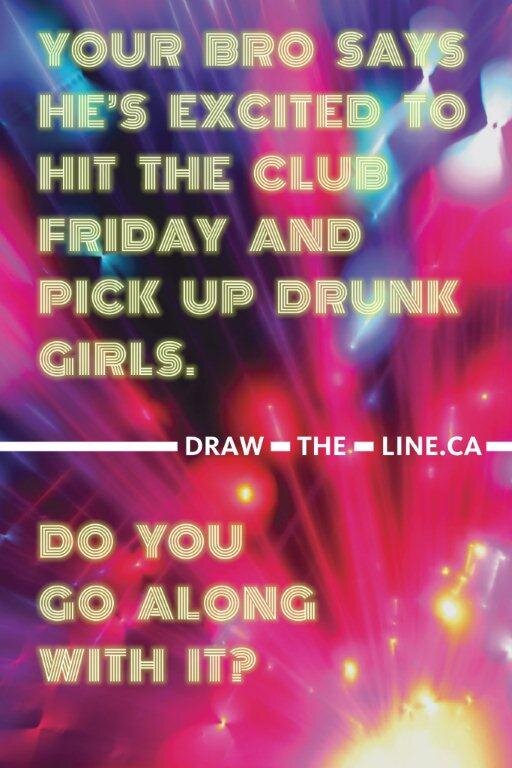
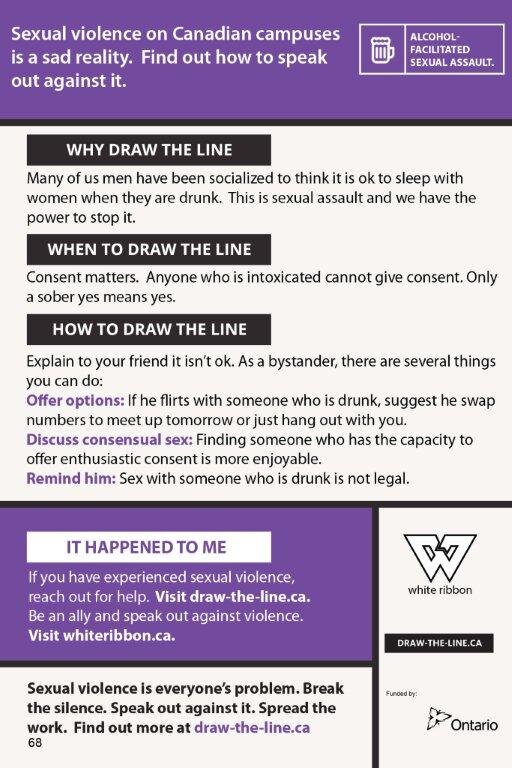
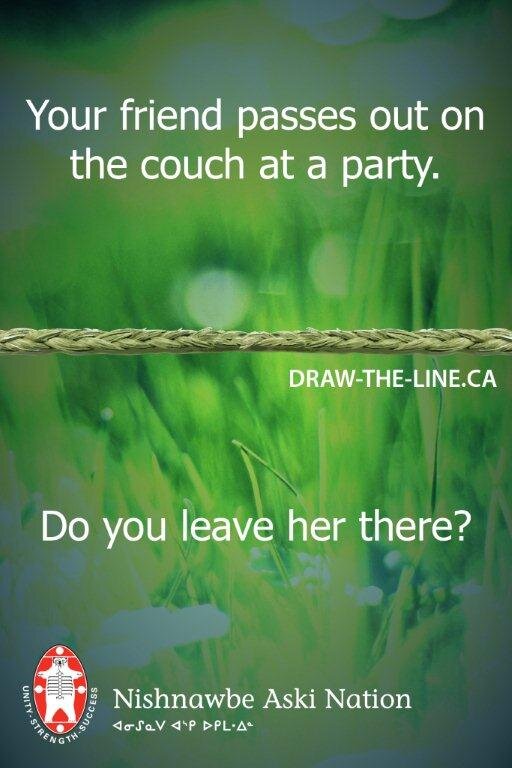
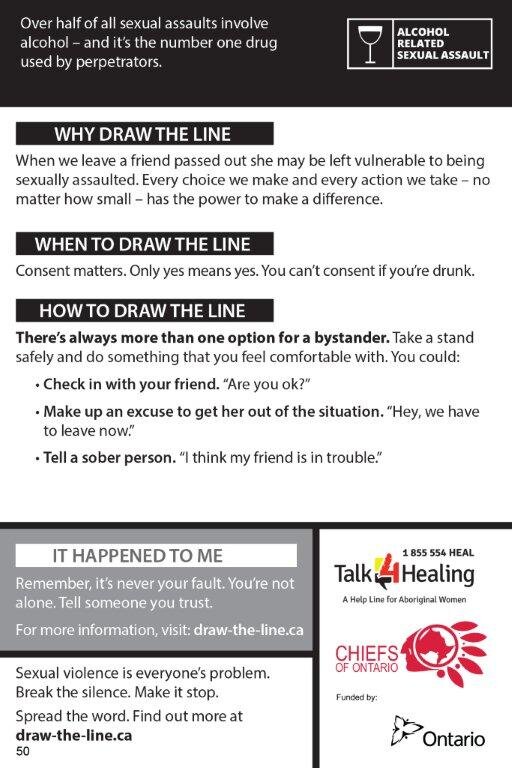
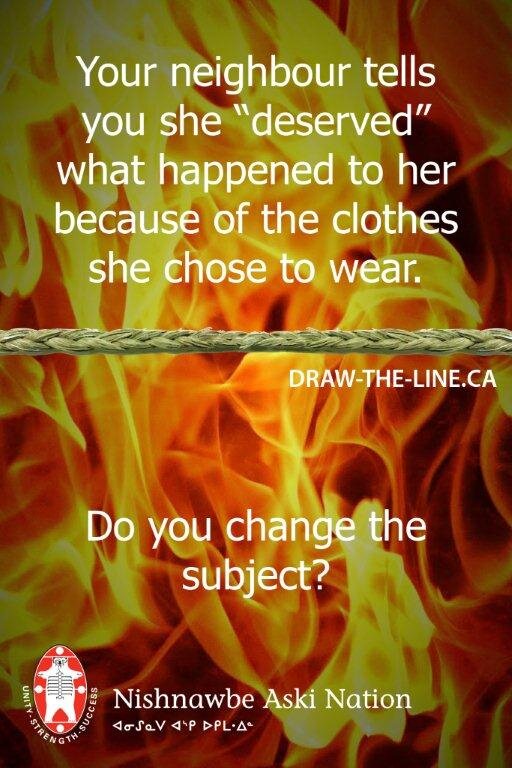
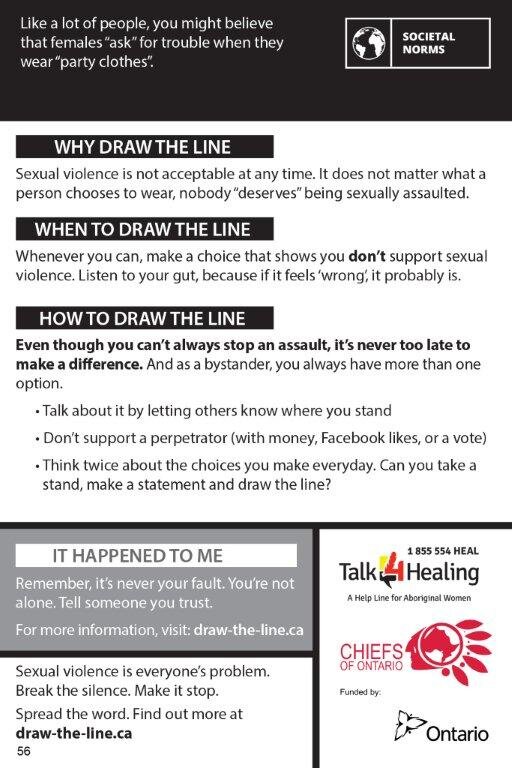
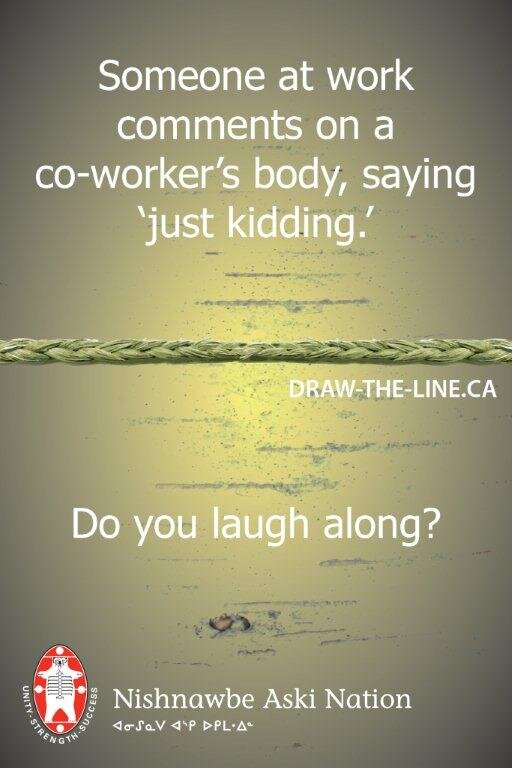
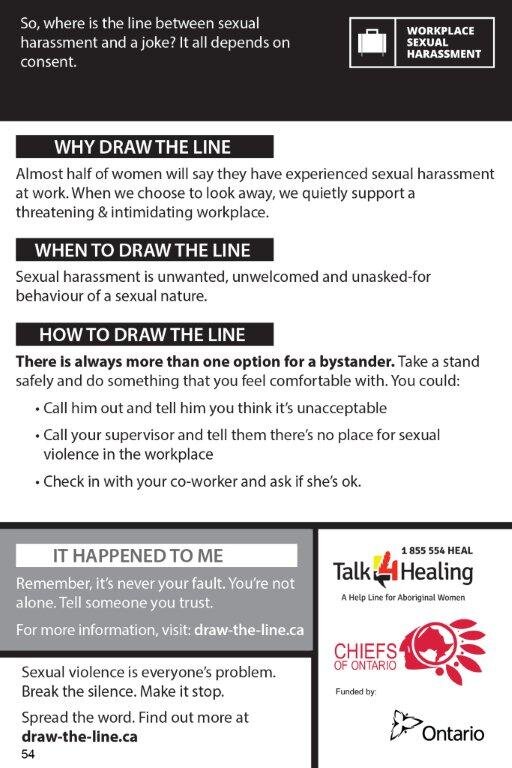
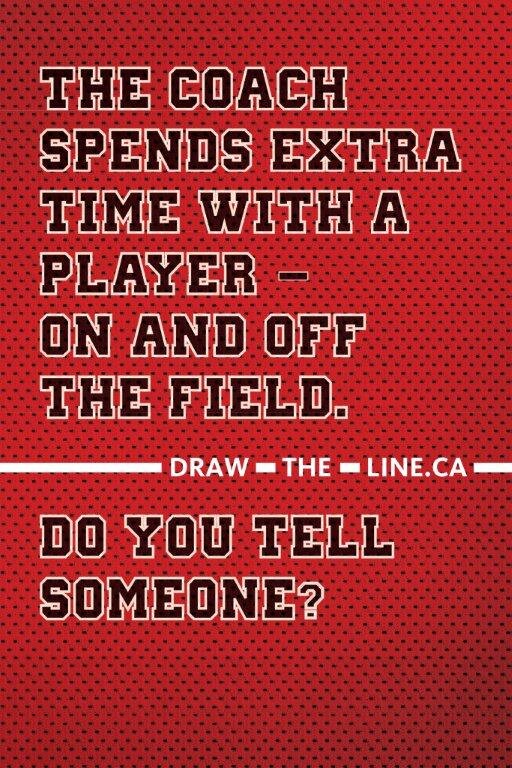
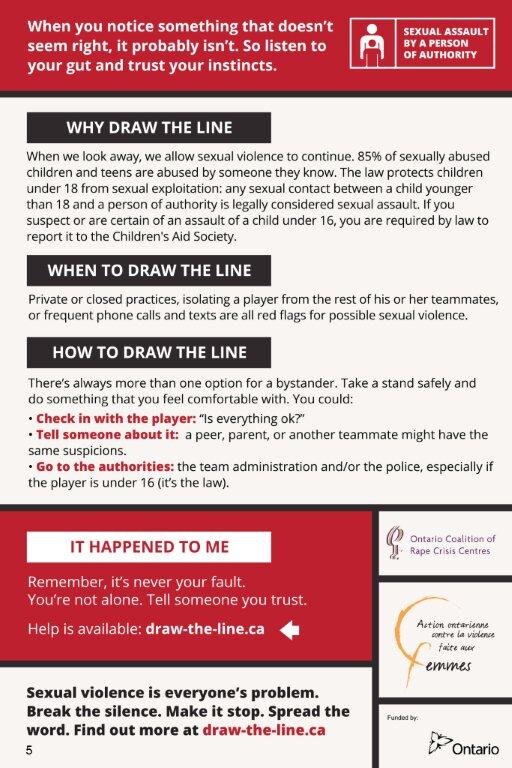

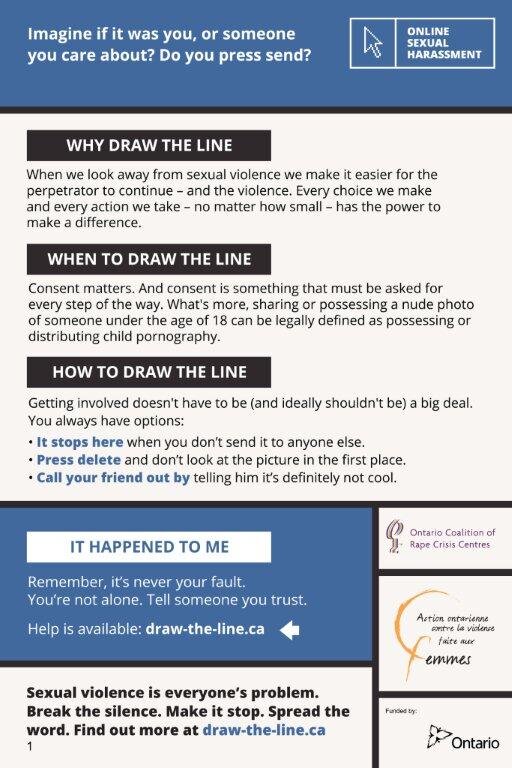
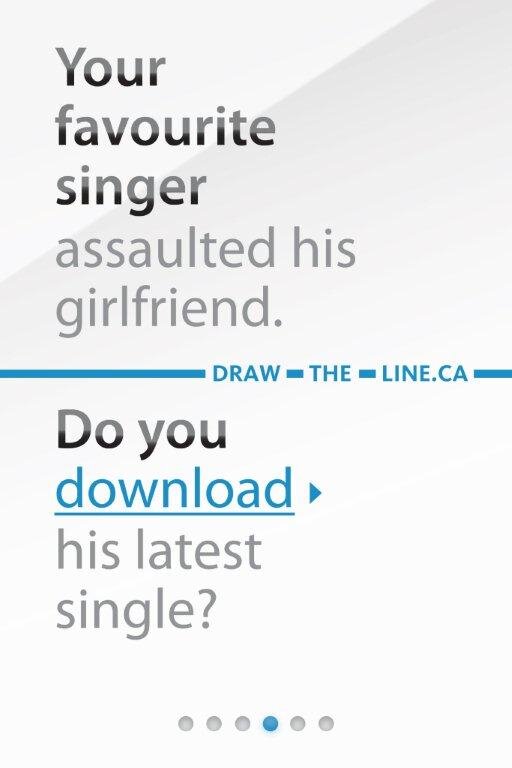
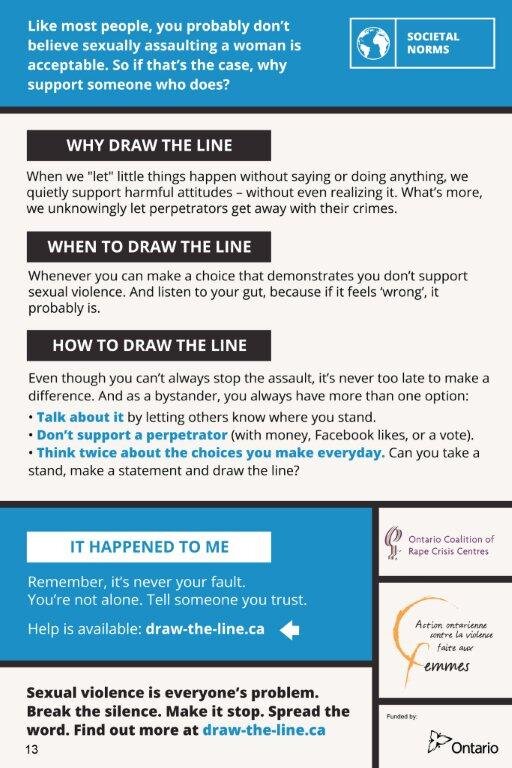
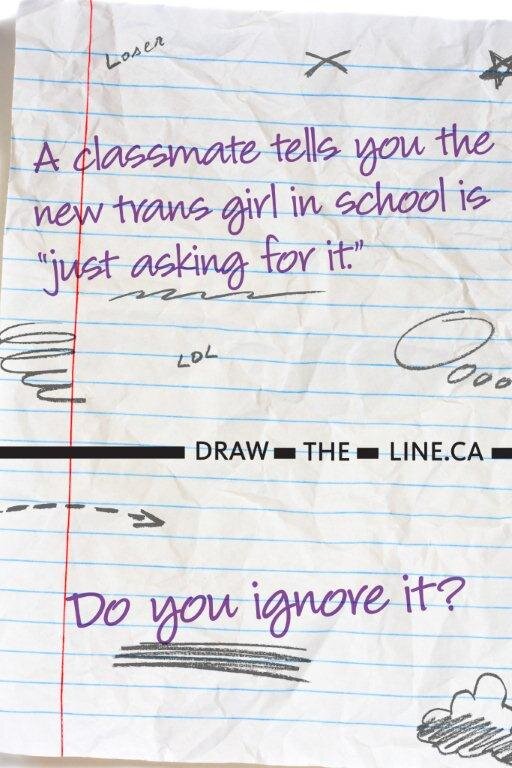
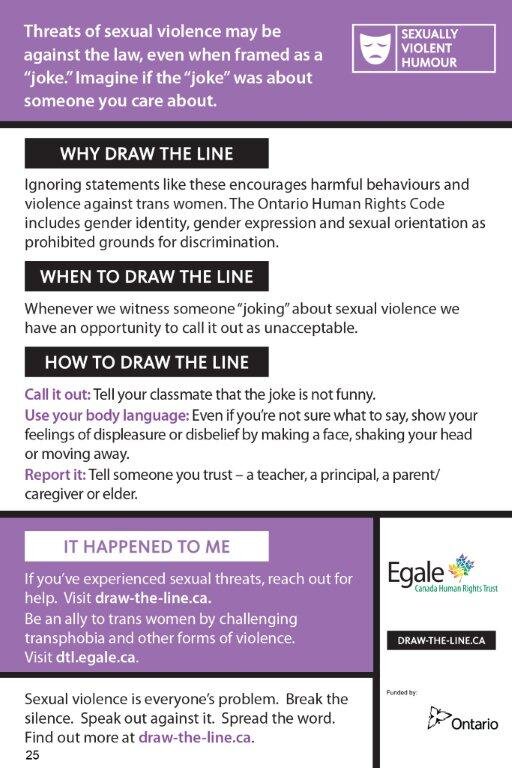

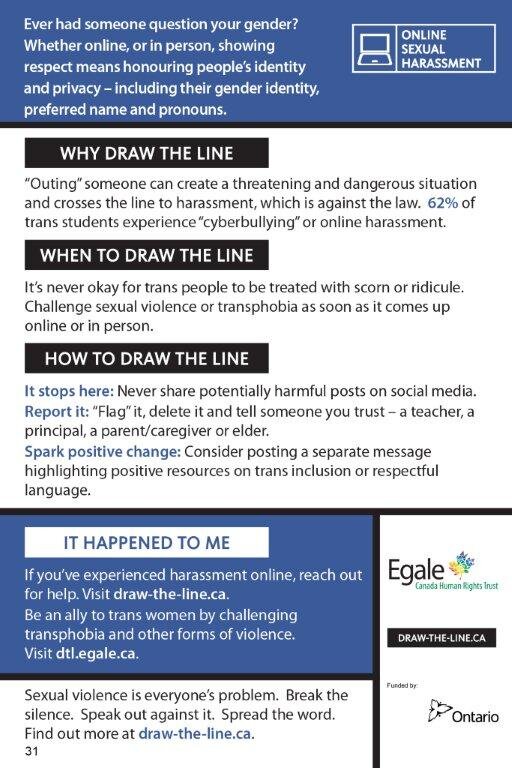
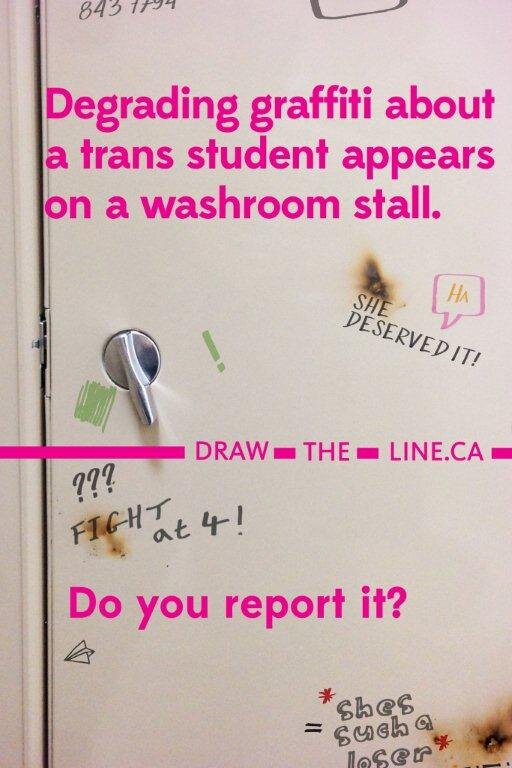
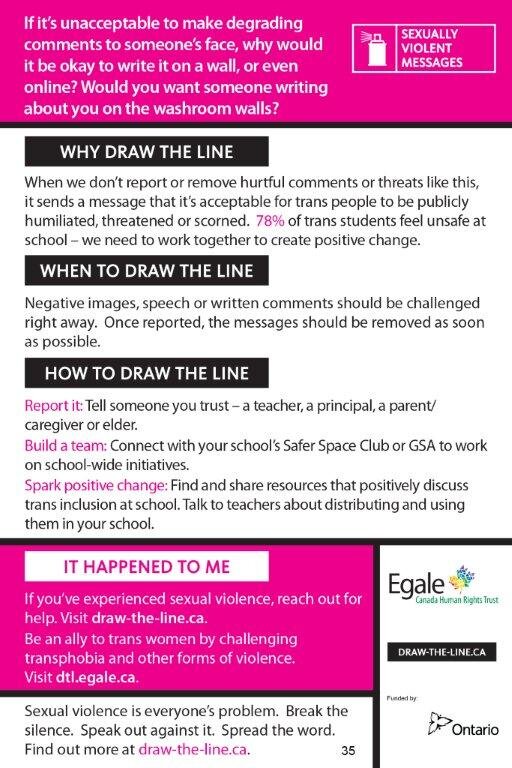
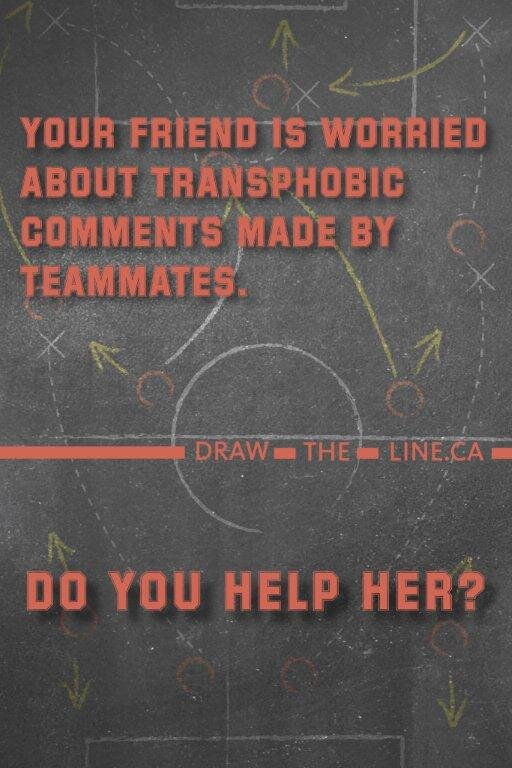
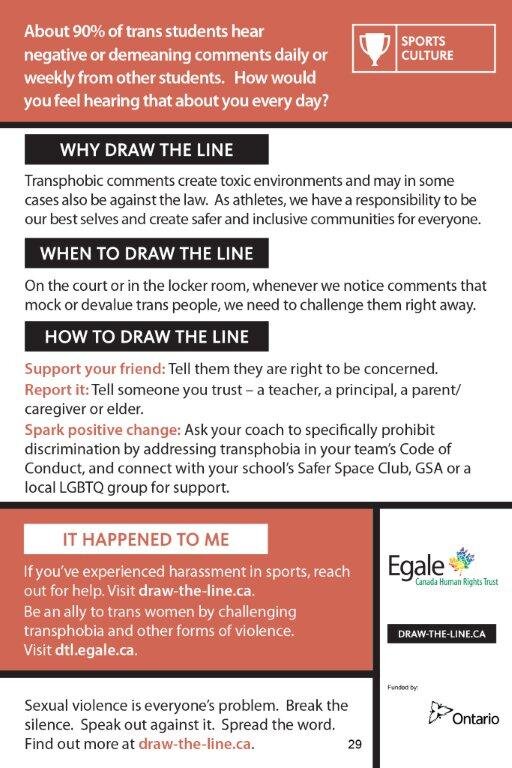
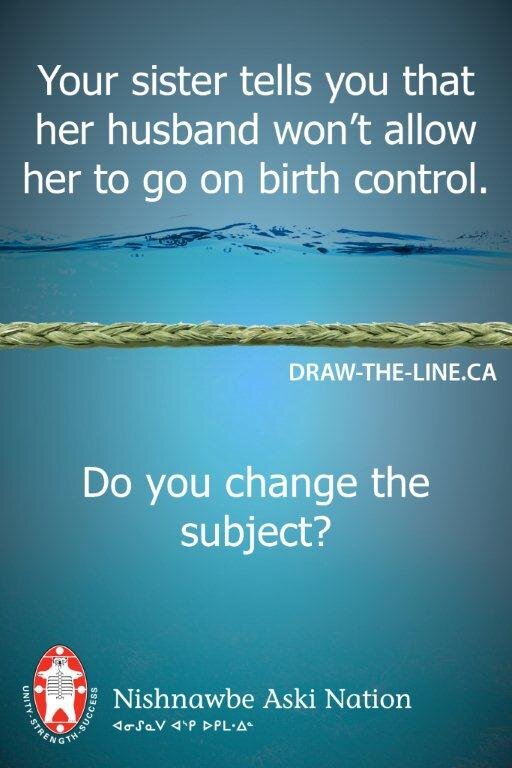
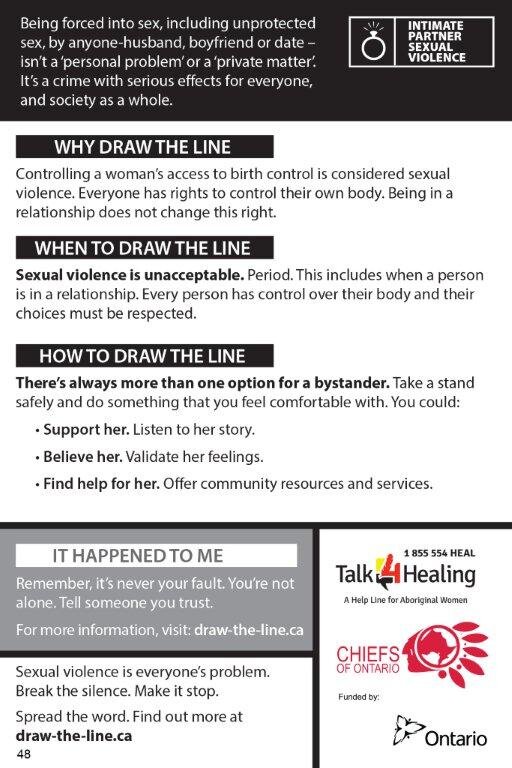
Draw the Line is a scenario-based bystander intervention campaign created by the Ontario Coalition of Rape Crisis Centres and Action ontarienne contre la violence faite aux femmes.
Focus on getting your wallet back
Jay Smooth has some fabulous tips for interrupting racism:
“If somebody picks my pocket, I’m not gonna be chasing them down so I can figure out whether he feels like a thief.”
Nervous? That’s Normal
DWS has got your back, whether it’s inviting us to do a bystander intervention workshop for your group or calling our 24 hour support line to chat about intervention skills!
Never miss a post! Keep in touch with DWS…




